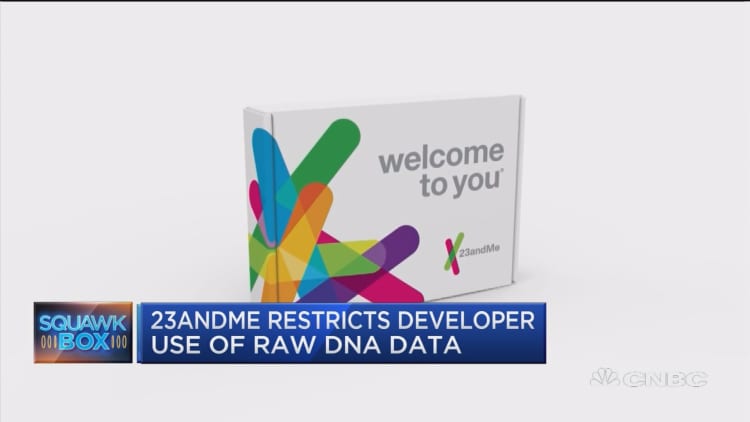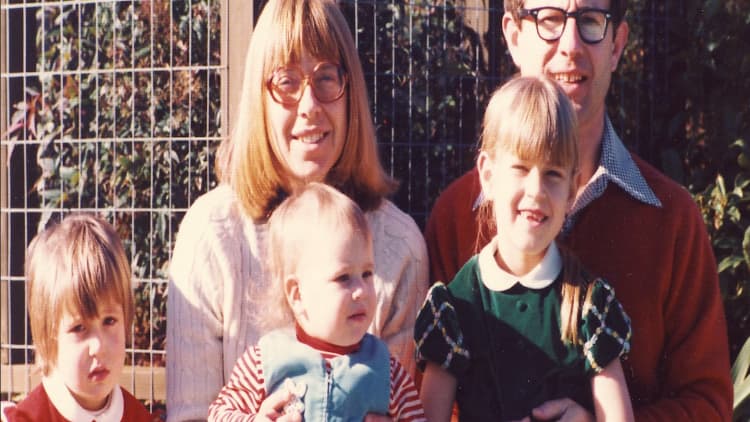Consumer DNA testing company 23andMe is testing whether users want far more information about their health for a steeper fee, according to several people familiar with the plan.
Some users have been getting notifications in recent weeks about a $749 "premium" service, but reported that nothing happened when they clicked on the link. That's a far more expensive offering than the company's most expensive product, which sells for $199.
Several people reported the change on a Reddit thread, speculating that it might be a mistake.
But a 23andMe spokesperson confirmed to CNBC that it is testing users' interest in a premium service for deeper genomic sequencing, but does not have immediate plans to roll out a product.
23andMe is one of the largest makers of at-home DNA tests, which start at $99. Customers send in a spit sample and receive reports about their ancestry plus some health information, like whether they have a greater risk of developing breast cancer.

The company, which has raised more than $780 million in venture capital from Alphabet and many other backers, has gone back and forth over the years about offering more extensive genetic testing technology.
In 2016, 23andMe dismissed its team of scientists working on next-generation sequencing. At that time, its CEO Anne Wojcicki told BuzzFeed News that the company "decided to focus on its core business."
The company's at-home ancestry and health tests involve a type of analysis called "genotyping," which looks at specific places in the DNA where there's important data. In contrast, sequencing involves determining the sequence of a length of DNA, whether it's a short piece or the whole thing -- approximately 3 billion base pairs.
Sequencing provides a lot more potentially useful data about human health. But it's more expensive, putting it out of reach for many consumers, and scientists are still learning whether much of the data is relevant or actionable.
If 23andMe were to offer a premium service, it would compete with start-ups like Veritas Genetics. Veritas sells its whole genome sequencing test for $1000 and up, depending on whether the user wants to purchase additional reports and analysis.
Aside from its tests, which have now sold to more than 5 million people, 23andMe makes its money by partnering with pharmaceutical companies like GSK. It also has a research and development division exploring new therapeutic targets for drugs.
Correction: An earlier version of this story misstated the current prices for 23andMe's products. They range from $99 to $199.



